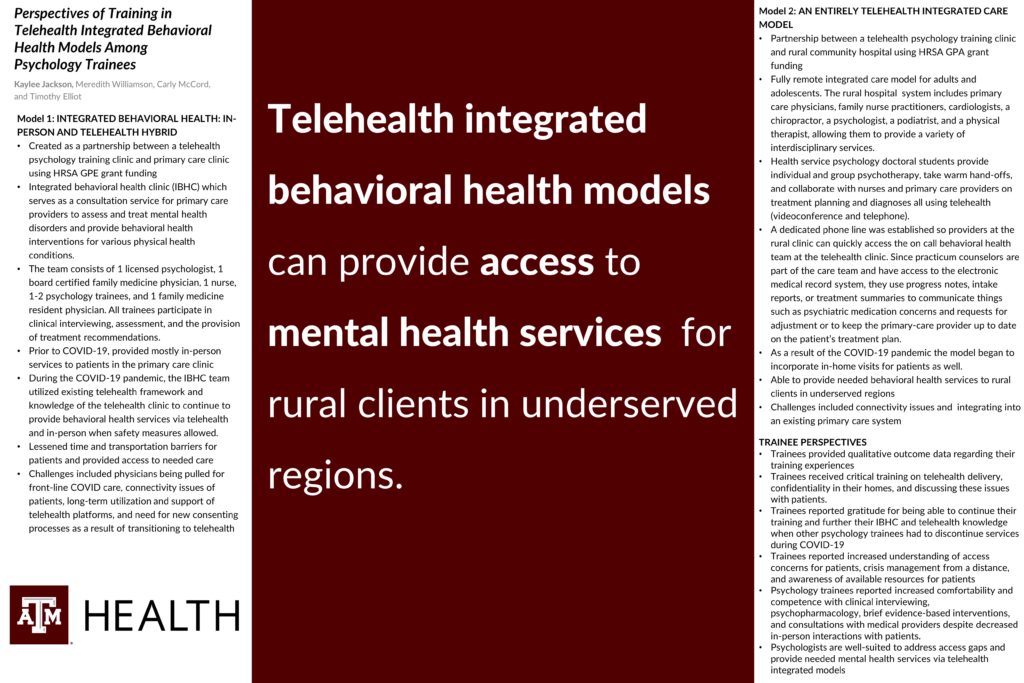Access to care is a critical issue of social justice, which psychology training programs are well poised to address through attention to interdisciplinary and telepsychology competencies (Cooper et al., 2019; Scheel et al., 2018). For over a decade, the Telebehavioral Care Program (TBC) at Texas A&M Health Science Center has provided telecounseling services to underserved individuals in rural areas and equipped the next generation of counseling psychologists for the future of telepsychology (McCord et al., 2020). Since primary care doctors are often the first line treatment for behavioral health issues, especially for rural and other minoritized individuals, integrating behavioral health services into primary care settings can be an important step in ensuring access to behavioral health care. The TBC in partnership with faculty from the Texas A&M Health Science Center Department of Primary Care and Population Health has been responsive to this shift and created increasingly integrated collaborative care models in primary care settings using telehealth (Sanchez Gonzalez et al., 2018). This poster will 1) describe two integrated behavioral health training models for psychology trainees utilizing telehealth technology before and during the COVID-19 pandemic, 2) address the unique impact of these models on training and skill development from a health service psychology trainee perspective, and 3) discuss the well documented capacity for psychologists to respond to the zeitgeists of integrated care and telepsychology (Perrin & Elliott, 2020).
Spring Virtual Conference April 17-18th | In-Person Annual Conference in San Antonio, TX Oct 24-26th


Leave a Reply